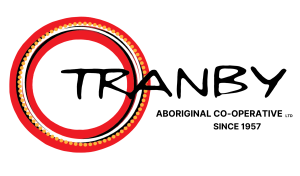M2 - Learner Manual
22. Community Legal Centres
Community legal centres (CLCs) are independent non-government organisations that provide free legal services to people and communities, at time when that help is needed most - particularly to people facing economic hardship and discrimination.
Community legal centres provide a safety net to prevent people's legal problems from escalating. Without early legal advice, families can break down and health problems can escalate; people can be unnecessarily evicted and can lose their jobs.
Sourced on 3/8/22: https://www.clcnsw.org.au/what-are-community-legal-centres
In 1975 a group of lawyers, volunteers, academics, social workers and community activists met in Redfern to explore the concept of “community control of legal services”. This group came together to advocate for the idea that everyone should be able to access justice, regardless of financial means. This was the impetus for the birth of community legal centres in NSW.
Two years later, in response to the scarcity of legal services for disadvantaged and marginalised people, the Redfern Legal Centre was established. The centre had one paid lawyer, supported by volunteers largely from the student body of UNSW. It provided free services to anyone who walked through the door, there was no means or merits testing. The centre was accountable to the community, to a committee led by community members, volunteers, lawyers and students. If there was no legal solution to injustice the centre fought for reform.
Generalist community legal centres soon developed in Parramatta and Marrickville with strong involvement from law students at Sydney and Macquarie University. In the 1980s Bob Ellicott QC helped to establish the Inner-City Legal Centre, which was supported by large law firms committing pro bono support to the centre. A fifth centre was opened at Kingsford by UNSW to provide opportunities for new law students to gain experience and to serve the community.
It soon became apparent that generalist community legal centres could not service all areas of legal need. Demand for assistance from the community in some areas required more focus and specialised response than generalist legal advice could provide. So, specialist community legal centres developed to cater to specific legal need and specific groups in areas including disability rights, immigration, tenancy, welfare rights, seniors rights, environmental law to meet community needs.
Centres realised that they needed centralised support for common issues, rather than working as individual centres. In 1990 NSW Community Legal Centre’s Secretariat was established after advocacy from centres. The secretariat supported the work of the centres and advocated on their behalf. The Secretariat became the Combined Community Legal Centres Group NSW in 1999, before changing its name and constitution to Community Legal Centres NSW in 2009. Community Legal Centres NSW is an independent peak body governed by a board elected by members and drawn from community legal centres. In 2018 its constitution was updated to enable board member positions from independent experts (not necessarily from community legal centres).
Community legal centres are now recognised and established as a core part of the legal assistance sector in NSW. The movement is still growing, and still committed to access to justice for all.
Sourced on 3/8/22: https://www.clcnsw.org.au/history-of-CLCs
Community legal centres are community-embedded organisations that can provide you with free help for your legal problems. We do not generally work in criminal law although we do provide lots of legal services and support to victims/survivors of DV. For assistance with criminal law issues please go to the Aboriginal Legal Service or Legal Aid NSW.
We provide legal information and legal assistance in areas such as:
· Domestic violence
· Family violence
· Sexual violence
· Family law
· Traffic fines
· Credit & Debt
· Housing
· Employment
· Discrimination
· Centrelink
· Wills
· Victims Compensation
· Police complaints
and more.
Community legal centres are not part of government. We do not provide your information to government or police, and we are bound by our professional obligations and community ethics to keep your information private.
There are 40 community legal centres in NSW - from Lismore to Nowra, Broken Hill to the Sydney metropolitan. Three of these centres are Aboriginal-controlled organisations:
Wirringa Baiya Aboriginal Women’s Legal Service (state-wide, but based in Marrickville): http://www.wirringabaiya.org.au
Warra Warra Legal Service at Broken Hill: https://www.warrawarra.org
Thiyama-li Family Violence Service (Walgett, Bourke and Moree): https://thiyamali.com.au
There are also some specialist state-wide community legal centres that run Aboriginal programs, like the Indigenous Women’s Legal Program at Women’s Legal Services NSW, Mob Strong Debt Help at the Financial Rights Legal Centre, and Aboriginal Tenants Advice and Advocacy Services at the Tenants’ Union of NSW.
Apart from these Aboriginal community controlled centres and specialist services that operate Aboriginal programs, you can also find generalist community legal centres in communities right across New South Wales.
There are about 31 Aboriginal people employed across 22 community legal centres in NSW in roles such as Solicitors, Paralegals Community Legal Education Officers, Community Development Workers, Children’s Court Assistance Scheme Workers, Legal Information Officers, Administrators, Financial Legal Advocates, Program Coordinators, and Centre Managers.
Sourced on 3/8/22: https://www.clcnsw.org.au/find-legal-help-aboriginal-people
Aboriginal Legal Access Program
The Community Legal Centres NSW Aboriginal Legal Access Program makes a significant contribution to access to justice for Aboriginal and Torres Strait Islander people in NSW by:
· Embedding cultural safety into the framework of community legal centres;
· Improving the numbers of Aboriginal staff in the legal sector, and thereby strengthening community connections to civil and early intervention legal services;
· Role modelling employment pathways and culturally appropriate settings for legal education;
· Delivering legal information and advice; and
· Developing and supporting relationships between community legal centres and local Aboriginal community controlled organisations and groups, including developing MOUs with the ALS and with Tranby College.
Sourced on 3/8/22: https://www.clcnsw.org.au/index.php/Aboriginal-Legal-Access
